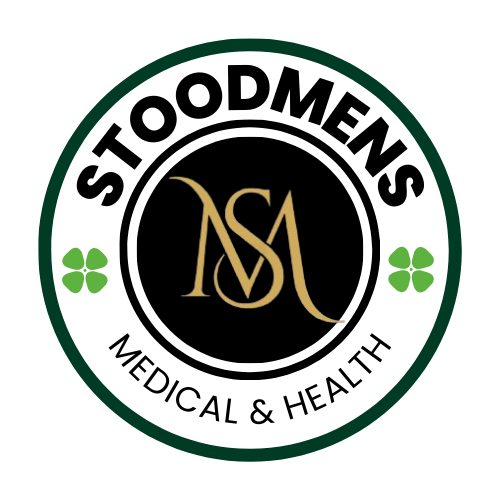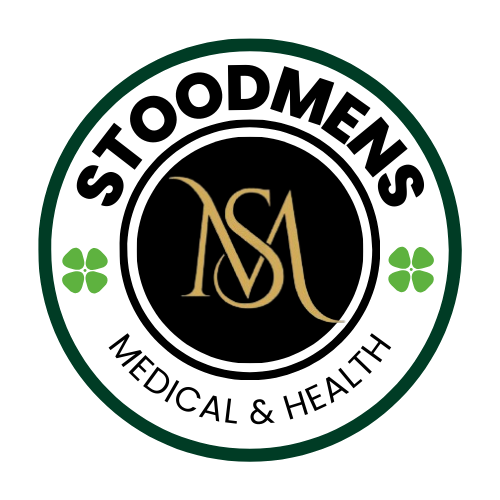Good day! As blossoms sprout and the sun sparkles more, now is the right time to partake in the excellence of spring and summer. In any case, hang on a sec—did you have any idea that alongside the hotter weather conditions comes something not fun? That’s right, allergies.
You’ve caught wind of sniffling and irritated eyes, yet here’s an unexpected consequence: Can allergies cause tooth pain? Abnormal, correct? Stay close by as we reveal the secret behind why allergies may be giving you teeth pain.
Can allergies cause tooth pain?
Certain individuals could see that their teeth feel sore when they have allergies. This happens because allergies can make the sinuses, which are close to your upper teeth, puff up. While this enlarging comes down on your teeth, they can begin to hurt.
Now and again, allergies can likewise cause sinus diseases, aggravating the pain. Individuals with allergies could likewise grind their jaws or grate their teeth more, which can add to the inconvenience. It’s critical to see a dental specialist on the off chance that your teeth hurt due to allergies, so they can assist you with feeling better.
Why exactly do allergies make your teeth hurt?
Indeed, everything begins with how allergies influence your sinuses. At the point when you have allergies to pollen, your sinuses—those air-occupied spaces in your mind and face—can get all clogged and compressed.
This incorporates your maxillary sinuses, which sit right over your teeth; the foundations of your upper molars are near these sinuses. In this way, when allergies cause tension and blockage in your sinuses, it can spread to the foundations of your teeth, prompting that pain-filled feeling.
But, there’s something else to it besides tooth pain. Allergies can likewise cause other oral medical issues, like dry mouth. When you’re stuffed up from allergies, it’s harder to inhale through your nose, so you wind up breathing more through your mouth.
In any case, here’s the kicker: breathing through your mouth can decrease spit creation. Also, spit resembles nature’s toothbrush; it helps clean your teeth and gums by washing away food pieces, plaque, and microorganisms.
Without enough spit, that stuff can develop on your teeth and gums, which can prompt things like gum sickness and pits. Furthermore, less spit implies more opportunities for terrible breath to sneak in.
How can you know if allergies cause tooth pain?
Here is a basic way: Focus on when your teeth begin feeling sore. If it occurs during allergy season and you’re likewise managing a stodgy nose, sinus pain, or cerebral pain, then it’s logical your allergies are to blame.
Be that as it may, assuming your teeth feel delicate to hot or cold food varieties and you’re not encountering any other sensitivity side effects, there may be an alternate justification for the aggravation. One way or another, it’s smart to see your dental specialist in Voyagers Rest to sort out what’s wrong with your teeth.
In 8 different ways, allergies cause tooth pain
- Sinus Pain: Allergies can cause your sinuses to feel constrained, which could make your teeth hurt, particularly the ones on top. If your brow, nose, and teeth feel throbbing, this is a result of your sinuses. Also, on the off chance that your nose is stodgy as well, pin it on those sensitivities to pollen.
- Dry Mouth: Allergies, particularly roughage fever, can dry out your mouth. This makes it more straightforward for cavities to form since spit generally safeguards your teeth from microbes. Thus, assuming that your mouth feels dry all year in light of allergies, it’s wise to see your dental specialist more.
- Sore Throat: At times, allergies make your nose stream, and that can give you a disturbed throat. It could make your teeth hurt. In case your throat hurts a ton and your teeth too, telling your dental specialist is brilliant.
- Bad Breath: Allergies can make your mouth extra mucusy, and that can give you stinky breath since microorganisms like to fill in that liquid. If you expect your breath is smell awful because of allergies, it could decay if your allergies remain nearby.
- Swollen Gums: When you have allergies, your gums can puff up because your body is combating the allergy. This can make your gums hurt and could provoke gum disease if you don’t keep on brushing, whether or not your gums are fragile.
- Tooth Responsiveness: Allergies can make your teeth more fragile to hot or cold food assortments. If you notice that your teeth hurt when you eat or drink something hot or cold during allergy season, it might be a consequence of your allergies.
- Jaw pain: Certain people with allergies could crush their jaws or mesh their teeth more, especially accepting that they have a restless outlook on overseeing sensitivity incidental effects. This can provoke jaw torment or even issues with your jaw joint, called TMJ.
- Tooth Decay: Assuming that your mouth stays dry because of allergies, it’s more direct for organisms to foster on your teeth, which can incite gloom. Expect your sensitivities to make your mouth feel dry, so try to hydrate, and see your dental expert to thwart tooth decay.
How to Prevent Tooth Pain due to Allergy
To avoid tooth pain from allergies, begin by handling sinus pressure, which can set off the inconvenience. On days when dust is high, take a stab at remaining inside more to try not to take in allergens.
Assuming you’re now feeling blocked from allergies, you can take a stab at utilizing over-the-counter decongestants or allergy medications to help clear up your sinuses and diminish tooth pain.
If normal allergy medications don’t appear to get the job done, you could have to involve a nasal splash for more serious allergy side effects and tooth relief from discomfort. Keep in mind, that anti-histamines can now and then cause your mouth to feel dry. To check this, try to drink a lot of water over the day.
Persevering tooth pain, whether it’s from allergies or something different, can upset your everyday daily schedule. If your teeth hurt due to allergies or you don’t know why, it’s smart to make a meeting with Stoodmens Dental Consideration of Voyagers Rest for help.
10 Allergy tooth pain relief remedies at Home
- Rinse with salt water: Blend a teaspoon of salt in warm water and gargle it around in your mouth to calm the torment.
- Use a virus pack: Enclose ice with a material and put it on your cheek to diminish expansion and help the pain.
- Drink natural tea: Chamomile or peppermint tea can assist with quieting aggravation and encouraging you.
- Sleep with more cushion: Hoisting your head can diminish sinus pressure and decrease tooth pain.
- Inhale steam: Hang over a bowl of boiling water with a towel over your head to take in steam and clear your sinuses.
- Put clove oil on a cotton ball: Spot it on your irritated tooth for some impermanent help – it has desensitizing properties.
- Chew without sugar gum: It can assist with making more spit, which washes away allergens and microorganisms that may be making your tooth hurt.
- Rinse with hydrogen peroxide: Blend it in with water and use it as a mouthwash to kill microorganisms and quiet your gums.
- Try needle therapy: Certain individuals find it helps with tooth pain; it includes minuscule needles put into specific pieces of your body.
- Drink loads of water: Remaining hydrated can disperse fluid and keep your mouth damp, which can cheer your tooth up.
These home remedies can cheer you up for some time, but if your tooth continues to hurt, it’s smart to consult a dental specialist.
When to see your Dental Specialist
Knowing when to see your dental specialist is significant when managing tooth pain. Here are some signs that mean now is the ideal time to make an arrangement:
- If your toothache deteriorates or you feel a sharp, pounding pain, it’s ideal to see your dental specialist immediately. These could be indications of a dental issue that needs consideration.
- If you at any point have allergy side effects but still get a toothache, it’s smart to see your dental specialist. It won’t be connected with your allergies, all things considered.
- Having difficulty biting food in light of tooth pain is one more motivation to see your dental specialist. It could mean there’s an issue that needs fixing.
- If hot or cold food sources and beverages generally make your tooth hurt, seeing your dentist is a sign. This responsiveness could be a sign of rot or disease.
- If your tooth has been harmed for a long time or longer, don’t overlook it. That sort of aggravation could mean something is off-base and should be looked at by a dental specialist.
- Feeling a knot or enlarging your gums is likewise a sign to see your dental specialist. It very well may be a sign of a disease that needs treatment.
By focusing on these signs, you can tooth pain relief try to get the right consideration for your teeth and keep away from more issues. Keep in mind, that it’s critical to see your dental specialist if you’re uncertain or on the off chance that the pain persists.







Hi stoodmens.com,
I hope you are doing great!
I was going through your website on behalf of this email. It has a good design and it looks great, but it’s not ranking in top on Google and other major search engines.
I’m an SEO Expert and I helped over 250 businesses rank on the (1st Page on Google). My rates are very affordable.
Let me know if you are interested, then I can send you our SEO Packages and Price list.
Thanks & Regards,
Kush S
Sr SEO consultant
Ph. No: 1 469-663-1569
If you don’t want me to contact you again about this, reply with “opt-out”
what is your price?